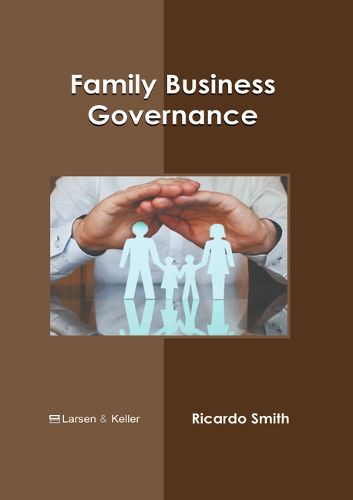Readings Newsletter
Become a Readings Member to make your shopping experience even easier.
Sign in or sign up for free!
You’re not far away from qualifying for FREE standard shipping within Australia
You’ve qualified for FREE standard shipping within Australia
The cart is loading…






Family Business Governance refers to the framework of rules, practices, and processes by which family-run businesses are directed and controlled. It comprises both the business and the family's involvement, aiming to balance professional management with family values and traditions. Effective governance structures help in delineating roles and responsibilities among family members, preventing conflicts, and ensuring business continuity across generations. Key components of family business governance include a family constitution or charter, which outlines the family's vision, values, and policies regarding business involvement. Establishing a family council or assembly can provide a platform for addressing family-related issues, while a board of directors, potentially including independent members, can offer objective oversight and strategic guidance. Succession planning is a critical aspect, ensuring leadership transition is smooth and aligns with the long-term goals of both the family and the business. Clear policies on employment of family members, compensation, and decision-making processes help maintain professionalism and fairness. The topics covered in this extensive book deal with the core subjects of family business governance. Different approaches, evaluations and methodologies and advanced studies on family business governance have been included in this book. Those in search of information to further their knowledge will be greatly assisted by this book.
$9.00 standard shipping within Australia
FREE standard shipping within Australia for orders over $100.00
Express & International shipping calculated at checkout
Family Business Governance refers to the framework of rules, practices, and processes by which family-run businesses are directed and controlled. It comprises both the business and the family's involvement, aiming to balance professional management with family values and traditions. Effective governance structures help in delineating roles and responsibilities among family members, preventing conflicts, and ensuring business continuity across generations. Key components of family business governance include a family constitution or charter, which outlines the family's vision, values, and policies regarding business involvement. Establishing a family council or assembly can provide a platform for addressing family-related issues, while a board of directors, potentially including independent members, can offer objective oversight and strategic guidance. Succession planning is a critical aspect, ensuring leadership transition is smooth and aligns with the long-term goals of both the family and the business. Clear policies on employment of family members, compensation, and decision-making processes help maintain professionalism and fairness. The topics covered in this extensive book deal with the core subjects of family business governance. Different approaches, evaluations and methodologies and advanced studies on family business governance have been included in this book. Those in search of information to further their knowledge will be greatly assisted by this book.